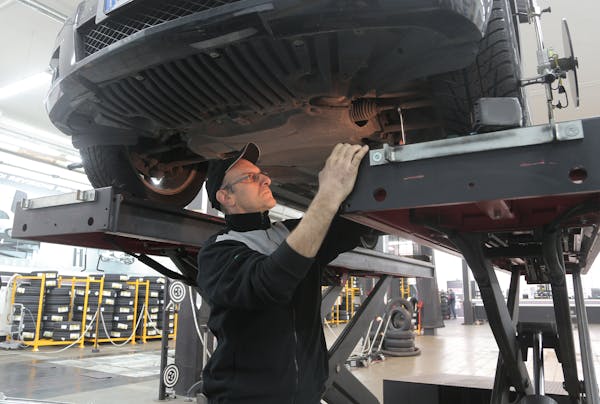Mechanics have to stay up-to-date with the latest car technologies. They must also be aware of the latest repair techniques and safety regulations.
Mechanics must be confident in explaining technical issues clearly to customers and providing transparent pricing estimates. They must be able to work under pressure, often in hot and noisy environments. Click on auto repair for more information.
Repairing and Maintaining Vehicles
A mechanic’s job is to inspect and repair vehicles. This means that they must be able to determine what is wrong with a vehicle and fix it so that it can run properly.
Mechanics also have to maintain vehicles, which is done through routine tasks like oil changes. This is important because it helps to ensure that a car runs efficiently and doesn’t have any problems that might lead to accidents.

Depending on what kind of work the mechanic does, they may also need to perform maintenance for other kinds of machinery or engines. This is especially true for industrial machinery mechanics who might work on large trucks or other heavy equipment.
In general, a mechanic needs to have a strong understanding of complex mechanical or electrical systems. They must also have excellent problem-solving skills and manual dexterity. This is because they often have to work with small parts and pieces of machinery that can be difficult to see or reach.
Troubleshooting Problems
One of the most important things that a mechanic can do is troubleshoot problems. These skills are essential when dealing with automotive issues that are complex and intermittent. Many of these problems can be difficult to solve and require a lot of patience.
In order to troubleshoot, a mechanic needs to be familiar with how the vehicle’s components work together. They also need to know how to test them correctly. If a mechanic doesn’t have these skills, they may spend a lot of time guessing and wasting parts.
It’s also important for a mechanic to have access to the manufacturer’s technical manual and other resources that can provide tips on solving certain problems. These tools can help them identify the underlying problem and find a solution quickly. In addition, they should document their work so that other technicians can learn from it. This will also prevent mistakes from being repeated in the future.
Communicating with Customers
A mechanic should have excellent communication skills in order to convey technical information and answer customer questions. Mechanics should be able to effectively communicate with a wide range of people, including other mechanics, customers, and support staff. Depending on the type of work they do, mechanics may also interact with other professionals in the industry, such as store clerks and salespeople or welders and millwrights.
Exceptional customer service is particularly important for mobile mechanics, who often work on-the-spot to provide repair services. Mobile mechanics who prioritize transparent communication, reliability, effective problem-solving skills, and professionalism tend to build trust and a loyal customer base over time.
In addition, mobile mechanics should be able to provide personalized service tailored to their clients’ specific needs. This approach cultivates strong customer relationships, reinforces trust, and helps mobile mechanics differentiate themselves from their competitors. It’s also an opportunity to showcase their technical expertise. This is especially crucial for customers who rely on mobile mechanics to address complex and unexpected repairs.
Working Under Pressure
The ability to work well under pressure is an important skill for mechanics, as they often encounter high-stress situations that require quick and effective responses. Prospective employers may ask about your ability to work under pressure when assessing your qualifications for the job, so it’s important to have examples of your success working in high-pressure environments.
Tight deadlines, complex projects and emergency situations can all create high-pressure scenarios in the workplace. Prospective employers want to see that you can stay calm and focused in stressful situations, even when the stakes are high or the situation is unpredictable.
A variety of skills can help you excel in high-pressure situations, including organization, planning and communication. In addition, it’s helpful to have a positive attitude and the ability to maintain perspective when facing challenging circumstances. These traits can help you stay calm and focus on the task at hand. The ability to work well under pressure is an essential skill for many careers.
